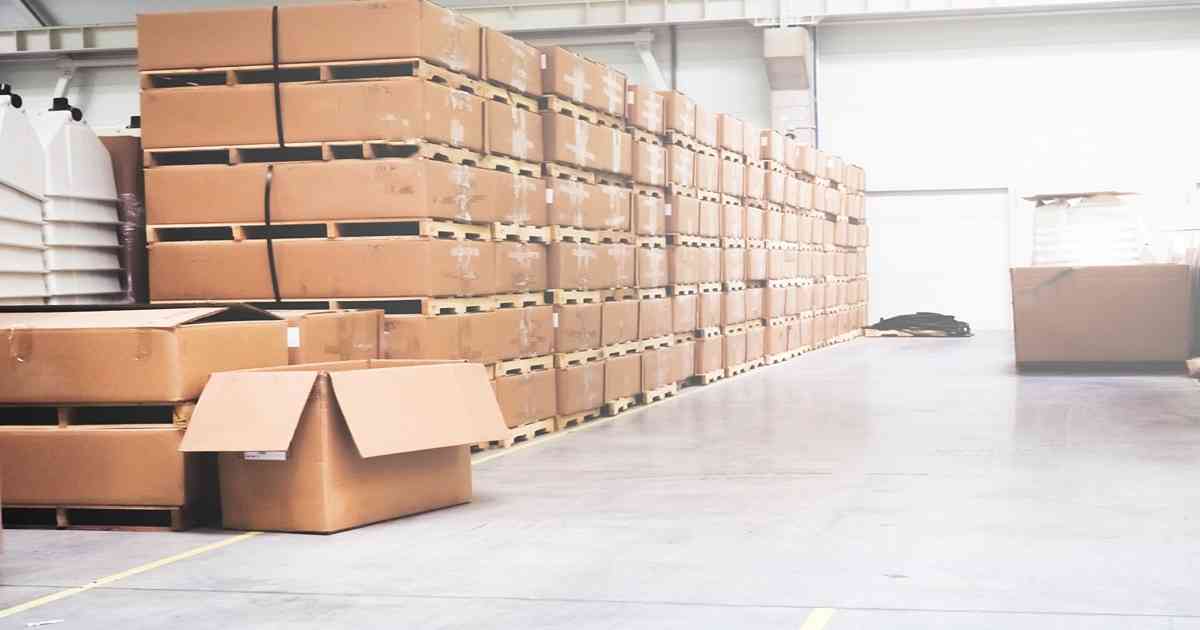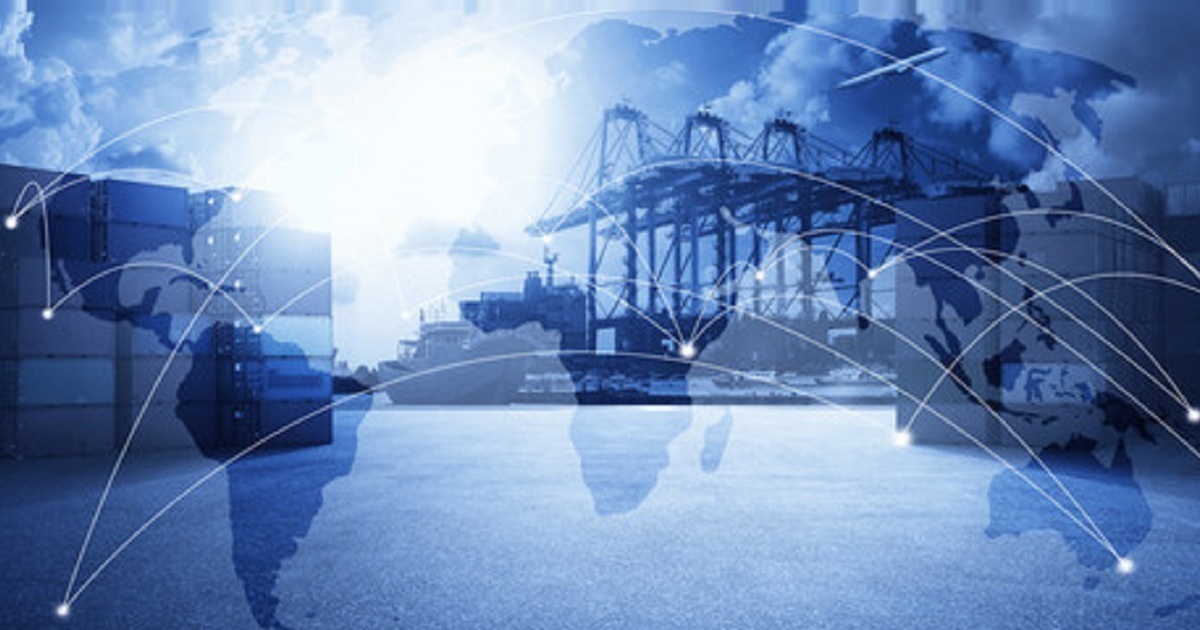
Warehousing and Distribution
Article | June 27, 2023
Over the past decade, transportation and logistics have witnessed an immense transformation, from using automotive vehicles to drones and paper tags to advanced geotags. Also, the introduction of novel technologies and incorporation of innovative solutions such as artificial intelligence and blockchain has further reshaped the sector.
How is Rising Complexity Triggering the Adoption of Novel Technologies?
Today's supply chain is, in a word, complex. It has so many complexities, from ever-rising consumer expectations and disruptive events to globalized sourcing and omnichannel demand, that it is now being compared to a modern-day Gordian knot. With complexity comes ambiguity, particularly in the transportation and logistics industry.
For instance, importers are expected to find cost-effective and efficient ways to transport goods from manufacturing facilities, which are frequently located halfway around the world, to distribution centers and then, ultimately, into the hands of consumers. In addition, e-commerce has further added to the complexity by introducing new channels into the jumble along with the introduction of same-day or next-day delivery standards with higher transparency and tracking features by leading players such as eBay, Walmart, and Amazon Here are a few prominent technologies assisting logistics companies to counter these complexities.
Data Analytics
Big data analytics aids in the more accurate and efficient planning of operational processes, services, and strategies, allowing businesses to align with emerging consumer needs.
Artificial Intelligence (AI) and Machine Learning
AI and Machine Learning have become the most sought-after tech in the transportation food chain. It assists businesses in enhancing operational functionality, boosting productivity and speed, designing optimal transit networks and routes, and improving safety through predictive risk calculation and elimination.
The Internet of Things (IoT)
With the rising need for transparency and tracking of shipped goods, IoT is garnering immense popularity across the transportation and logistics sector. It enables businesses to monitor and track their goods in real-time with the help of geo-tagging, RFID tags, and GPS, resulting in fewer delays in deliveries.
Read More

Warehousing and Distribution
Article | July 11, 2023
Warehouse logistics is the heart of any supply chain operation, assimilating and dispatching goods to ensure availability and timely delivery. With more consumers turning to e-commerce, it’s important for businesses of all sizes to bolster the supply chain to handle the e-commerce business model. According to research conducted by BigCommerce, the top three factors that influence consumers’ online purchasing decisions are convenience, cost and free shipping. In fact, the National Retail Federation (NRF) found that 75% of consumers expect delivery to be free even for orders under $50.
Read More

Transportation
Article | April 26, 2023
Unlock operational efficiency and deliver exceptional customer service with a WMS. Learn how cloud-based WMS improves control, enhances customer service, and prepares businesses to develop & succeed.
Contents
1. Importance of Warehouse Management Systems
2. How Warehouse Management Systems Optimize Operations
2.1. Productivity Tracking
2.2. Inventory Control
2.3. Labor Management System
2.4. Slotting
2.5. Batching Logic
3. Essential Warehouse Operations Procedures
3.1. Inbound Logistics Process
3.2. Outbound Logistics Process
5. Conclusion
1. Importance of Warehouse Management Systems
A warehouse management system (WMS) is essential for optimizing warehouse operations and delivering exceptional customer service. There are five compelling reasons to consider implementing a WMS. Firstly, it enhances inventory control and management by reducing inventory levels, improving order fulfillment, and increasing accuracy. Secondly, it improves customer service and tracking through improved picking accuracy and automated shipment organization. Thirdly, a WMS boosts company productivity by adding warehouse efficiency and quality control to the fulfillment process. Fourthly, it provides a significant return on investment by improving sales accuracy, reducing errors, providing safe warehouse and simplifying customer support. Lastly, a good WMS integrates seamlessly with existing business management systems and adapts to evolving needs. Additionally, WMS enables businesses to meet compliance regulations through real-time data recording, enhanced business intelligence, and process automation.
2. How Warehouse Management Systems Optimize Operations
2.1. Productivity Tracking
Warehouse management systems (WMS) are crucial in optimizing operations by providing comprehensive productivity tracking tools. These systems capture and analyze key performance indicators (KPIs) such as order fulfillment rates, picking accuracy, and labor productivity. Organizations can identify bottlenecks, allocate resources effectively, and implement process improvements by tracking these metrics in real-time and generating insightful reports. With WMS productivity tracking, businesses gain a clear understanding of their operational efficiency and can make data-driven decisions to enhance overall performance.
2.2. Inventory Control
Efficient inventory control is essential for logistics warehouse management, and WMS solutions excel in this aspect. WMS provides real-time visibility into inventory levels, locations, and movements. Businesses can accurately track stock levels, monitor expiration dates, and implement automated replenishment warehouse processes. With advanced features like cycle counting and stock level alerts, WMS ensures inventory accuracy and reduces carrying costs. By optimizing inventory control, businesses can avoid stockouts, minimize excess stock, and improve order fulfillment rates, enhancing customer satisfaction.
2.3. Labor Management System
WMS incorporates a robust labor management system that enables businesses to allocate and manage their workforce effectively. These systems provide tools for labor planning, task allocation, and performance tracking. WMS optimizes labor allocation by assigning tasks based on employee skills, availability, and workload. By monitoring labor productivity and efficiency, businesses can identify opportunities for improvement and implement training programs to enhance employee
performance. With WMS labor management capabilities, organizations optimize labor costs, minimize overtime, and improve overall operational efficiency.
2.4. Slotting
Strategic slotting is a critical component of warehouse optimization, and WMS offers advanced slotting capabilities. By analyzing data on product demand, turnover rates, and order frequency, WMS determines the optimal locations for different products within the warehouse. Efficient slotting reduces travel time, minimizes congestion, and streamlines order picking. WMS enables businesses to assign appropriate storage locations based on product size, weight, and velocity. By optimizing slotting strategies, organizations can significantly enhance picking efficiency, reduce errors, and improve overall warehouse productivity.
2.5. Batching Logic
Batching logic is a key feature of WMS that enhances order-picking efficiency. WMS intelligently groups multiple orders with similar product requirements, locations, or delivery routes. By consolidating these orders into batches, the system enables batch picking, where a picker can fulfill multiple orders in a single trip through the warehouse. Batching logic reduces travel time, minimizes labor costs, and increases order picking speed. By maximizing picking efficiency, businesses can improve order fulfillment rates, reduce order cycle time, and meet customer expectations effectively.
3. Essential Warehouse Operations Procedures
A robust distribution center network serves as the backbone of operations, transforming raw materials into finished products and ensuring their timely delivery to customers. To gain a comprehensive view of logistics network and improve supply chain visibility, it's crucial to understand the distinction between inbound and outbound logistics.
3.1. Inbound Logistics Process
Inbound logistics encompasses the services required to bring materials and goods into businesses. This includes transportation, storage, and delivery processes. With the help of warehouse management systems (WMS), purchasing can be streamlined by synchronizing vendor details and inventory control levels. WMS allows efficient receipt scanning and guides warehouse staff to shelve items accurately. It also recommends optimal put-away, slotting, and storage space utilization techniques. Additionally, WMS facilitates reverse logistics by providing real-time information on product availability, enabling timely restocking and preventing stockouts.
3.2. Outbound Logistics Process
Outbound logistics focuses on the storage, transportation, and delivery systems that ensures finished products reach their final destination. WMS plays a vital role in this process as well. It enables accurate order picking through barcode or RFID scanners, reducing errors and ensuring the right products are chosen. Warehouse management processes integrated with WMS can automate product packaging, allowing for differentiation across sizes and optimizing packaging channels. Moreover, WMS simplifies printing shipping labels, price tags, logos, and other necessary documentation, eliminating manual data input and reducing human errors. WMS enhances the overall customer experience and minimizes fulfillment errors by ensuring timely delivery and notifying customers.
4. Implementing Cloud Warehouse Management Systems to improve productivity
Using a cloud-based warehouse management system offers several advantages for businesses looking to optimize their inventory control and streamline operations in complex distribution environments. Cloud supply chain management solutions provide benefits like multi-warehouse tracking, sales forecasting, and on-time delivery. Here are three key benefits of implementing a cloud WMS:
Increased control over business growth: Cloud-based WMS provides real-time visibility into inventory, allowing businesses to manage operations and make informed decisions efficiently. With automatic updates and centralized access, stakeholders can access relevant information anytime, enabling better control over business growth and flexibility to adapt to changing market demands.
Improved customer service: A cloud WMS empowers teams to track shipments, update arrival dates, and effectively manage the supply chain. It enables seamless communication and collaboration across the organization, ensuring timely deliveries and enhancing customer satisfaction. Efficiently conveying information leads to better customer service and a competitive edge.
Preparedness for upcoming changes: Cloud WMS offers an affordable and scalable warehousing solution. With cloud computing, businesses can easily adjust resources to meet fluctuating demands and seasonal changes. The ‘self-service’ access to WMS applications in the cloud allows for increased agility and quick adaptation to evolving business needs. Unlike traditional self-hosted systems, cloud WMS eliminates the need for upfront hardware investments and provides seamless scalability.
5. Conclusion
In the rapidly evolving business landscape, a warehouse management system (WMS) holds immense importance for organizations aiming to optimize their operations. As we look to the future, the role of WMS becomes even more crucial. With advancements in technology and the advent of new platforms, a cloud-based WMS offers unparalleled integration possibilities. By harnessing the power of cloud supply chain planning systems, businesses can gain better control over their inventory and navigate the complexities of modern distribution environments. The benefits are significant: increased control over business growth, improved customer service through real-time tracking, and preparedness for upcoming changes. By embracing cloud, WMS empowers businesses to stay agile, enhance productivity, and drive sustainable success in the dynamic business landscape of the future.
Read More

Article | July 29, 2021
Risk management has been a problem for as long as supply chains have existed. Because of the interdependence of all its connections, even a minor issue in one isolated region has the potential to jeopardize a whole global supply chain. As a result, when major global trends and events occur, the potential for widespread supply chain disruption is enormous.
Global supply chain risks and market disruptions have reached an all-time high. The most notable of them is the COVID-19 pandemic. In a 2020 survey, the Institute for Supply Management discovered that 95% of companies faced operational issues due to the pandemic. As a result, business executives all around the globe believe that if they want to be more resilient and competitive in the present market, they need to modernize and make significant changes to their supply chain strategy.
Other recent factors that have had a significant impact on traditional supply chain practices include the fast pace of change in consumer behaviors and a pretty unstable trade and political environment.
In the last ten years, e-commerce spending has tripled, and internet shopping had increased by 149% in 2020 compared to the previous year. With the growth of e-commerce, there has been a rise in customer demand for faster delivery and more personalized shopping experiences. The Amazon Effect refers to the growing expectation for same-day delivery and its effect on businesses and logistical networks. To be resilient enough to react to these rising demands, supply chain managers have had to make fast and significant modifications to their logistics and warehousing networks, as well as discover new ways to collaborate with third-party fulfillment partners.
Even before the impact of COVID-19, American businesses were attempting to reduce their dependence on foreign manufacturers and suppliers. Foreign tariffs and trade policies had become more unpredictable by 2019, and businesses were seeking technological solutions to make the supply chains more self-sufficient and resilient. As a result, integrating digital transformation and Industry 4.0 technology into supply chain operations is quickly becoming a top concern for global business leaders.
How does Supply Chain Resilience Work?
A flexible contingency plan and the ability to react swiftly to operational disruptions are important characteristics of effective supply chain management. However, to be truly resilient, a supply chain must be able to predict and anticipate disruptions and, in many cases, avoid them entirely.
Strategic supply chain planning is an important step in achieving resilience because it synchronizes all supply chain components and increases visibility and agility. Supply and demand needs are better understood, and production is synchronized due to supply chain planning. This integrated, forward-thinking approach assists businesses in better anticipating problems, reducing the impact of supply chain disruptions, and improving overall operations.
When a business has the digital systems to analyze and make sense of Big Data, it significantly improves supply chain resilience. Artificial intelligence-enabled systems can curate disparate data sets from across the business and the globe. To discover trends and opportunities, news, competitor activity, sales reports, and even customer feedback can be examined together. The system's connected devices are constantly monitored, providing real-time insights about where and how processes can be automated and improved. For instance, AI, machine learning, and modern databases acquire and handle Big Data and analyze and learn from it in an almost infinite number of ways. This enables intelligent automation across the network and provides supply chain managers with the real-time insights they require to respond quickly to disruption and unexpected events.
Supply chain managers have traditionally sought to limit the number of partners and suppliers in their network to minimize operational and logistical complexity. This approach is based on the stability of the social, environmental, and political systems. Unexpected disruptions in one region can slow or even stop network operations across the board. Supply chain resilience technologies, such as blockchain, sensors, and advanced analytics, enable supply chain managers to monitor complex partnerships and supplier contracts even in the most remote parts of their network.
Profitability in the supply chain has always been dependent on minimizing excess and keeping inventories as lean as possible. Capacity and inventory buffers are expensive, and supply chain managers have often bet against disruptions to keep prices low. When the pandemic struck, many businesses discovered the real cost of the gamble. Supply chain operations can involve on-demand manufacturing, virtual inventories, and predictive demand forecasting using digital supply chain technologies to remain resilient, even in times of unexpected disruption.
Benefits of a Resilient Supply Chain
Finding a successful balance between supply and demand is a significant issue for any supply chain manager in an increasingly competitive market. Many businesses that have cut costs on diversification, supply chain technology, and other resilience measures have lately discovered the true cost of those choices. However, when businesses engage in diversification, supply chain technologies, and other resilience measures, they can achieve a variety of business benefits, including:
More efficient operations: Better resilience often results in less risk and a greater capacity to invest in innovation and growth. For example, according to a 2020 global business analysis conducted by Bain and Company, businesses that prioritized their investment in supply chain resilience had up to 60% quicker product development cycles and were able to increase production capacity by up to 25%.
Enhanced productivity: Resilient supply chain solutions lead to the overall system increased productivity. According to a McKinsey 2020 survey, supply chain leaders from across the world report increased productivity due to resilient supply chain systems, and 93% of those surveyed plan to prioritize resilient supply chain strategies for investment in the next year.
Risk reduction: Supply chain activities are often the most vulnerable to risk and loss in many businesses. Supply chains, by nature, are geographically distributed and functionally complex. As a result, supply chains are particularly vulnerable to risk. Resilient supply chain technologies minimize risk by providing insight into all network operations and enabling companies to improve and adjust their processes and logistics in real-time.
Technologies for an Agile Supply Chain
Digital transformation and modern supply chain technology provide businesses with the resilience and competitive advantage they need to react swiftly to disruptions and opportunities.
Artificial intelligence (AI): AI-powered supply chain systems can offer deep procedural and operational insights by gathering and analyzing data from many sources. Predictive analytics and Big Data analysis can assist in predicting risk and demand and recommending measures and reactions in the company.
Machine learning: Machine learning enables the discovery of patterns in supply chain data and the identification of these influential factors - all while constantly learning. This enables supply chain managers to react fast with the finest workflows and operational strategies available.
Industrial Internet of Things (IIoT): The IIoT network in a supply chain comprises connected devices and objects with sensors and unique IDs that allow them to transmit and receive digital data. They collect information and communicate with the central system. AI can analyze and understand this data to enable quick decisions and intelligent automation of supply chain operations and procedures.
Additive (3D) printing: Smart factories can quickly reprogram 3D printers to produce specific products on-demand without disrupting regular business operations in the long run. The accessibility of potential virtual inventories enables supply chains to defend themselves against disruption.
Robots and autonomous things: Robots and drones, which are intelligently automated for speed, efficiency, and accuracy, can adapt their operations on the go to meet quickly changing requirements. They also reduce the risk of harm by eliminating overly repetitive or dangerous tasks from human workers.
Modern databases: The resilient supply chain solutions rely on Big Data, advanced analytics, and real-time insights from modern databases. Supply chain technology can be improved to operate faster and most resilient when equipped with a modern ERP system and an in-memory database.
Resilience means more than just surviving a disruption in operations. A fully resilient supply chain and businesses survive hardship and use it to innovate and improve their business. Building a resilient supply chain is very important in this modern era because disruptions like a pandemic, wars, climate change, etc., are occurring a lot these days. A resilient supply chain helps businesses to survive and thrive even during tough times. To read more about ways to boost supply chain performance, click here.
FAQ
What is supply chain resilience?
Supply chain resilience refers to the supply chain's capacity to be prepared for unexpected risk events, react and recover swiftly to potential disruptions, and grow by shifting to a new, more desirable state in order to improve customer service, market share, and financial performance.
How is supply chain resilience measured?
A supply chain's resilience index is calculated by aggregating its company's resilience index. Given that supply chain company's performance influences overall supply chain performance, supply chain resilience should be measured using the companies' resilience index.
{
"@context": "https://schema.org",
"@type": "FAQPage",
"mainEntity": [{
"@type": "Question",
"name": "What is supply chain resilience?",
"acceptedAnswer": {
"@type": "Answer",
"text": "Supply chain resilience refers to the supply chain's capacity to be prepared for unexpected risk events, react and recover swiftly to potential disruptions, and grow by shifting to a new, more desirable state in order to improve customer service, market share, and financial performance."
}
},{
"@type": "Question",
"name": "How is supply chain resilience measured?",
"acceptedAnswer": {
"@type": "Answer",
"text": "A supply chain's resilience index is calculated by aggregating its company's resilience index. Given that supply chain company's performance influences overall supply chain performance, supply chain resilience should be measured using the companies' resilience index."
}
}]
}
Read More